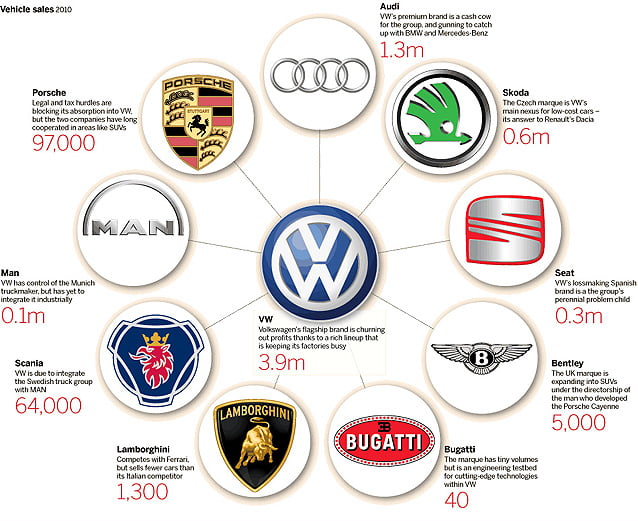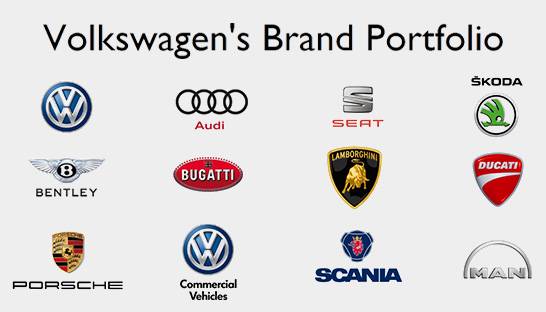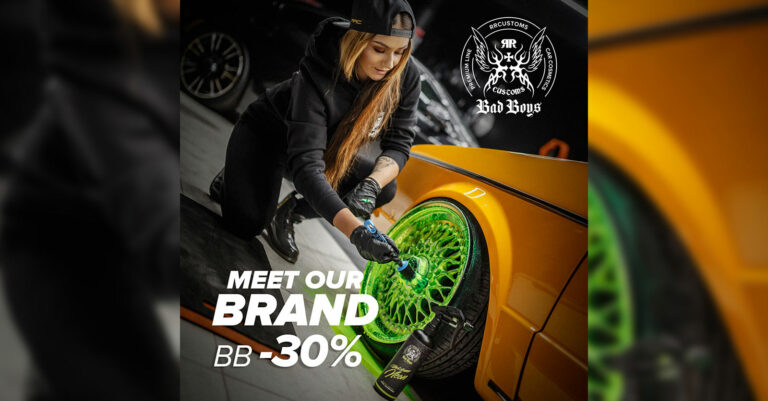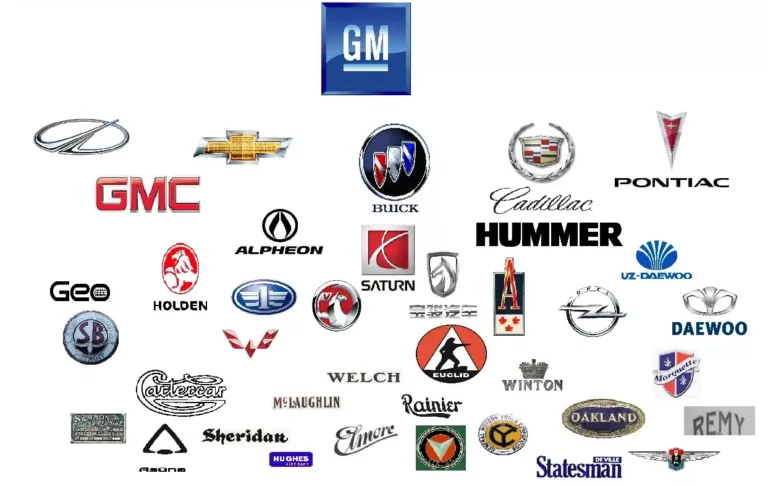What Car Brands Does Volkswagen Own: A Comprehensive Guide to a Global Automotive Empire
What Car Brands Does Volkswagen Own: A Comprehensive Guide to a Global Automotive Empire cars.truckstrend.com
In the vast and ever-evolving landscape of the global automotive industry, few entities command as much influence and diversity as the Volkswagen Group. Far more than just the iconic "people’s car" brand, Volkswagen AG (Aktiengesellschaft, or public limited company) is a colossal multinational corporation that has strategically built an impressive portfolio of some of the world’s most renowned and specialized automotive marques. Understanding which brands fall under the Volkswagen umbrella is crucial for anyone interested in the dynamics of the auto industry, consumer choices, and the intricate web of shared technologies and market strategies that drive modern car manufacturing.
This comprehensive guide will delve into the heart of Volkswagen’s expansive ownership, exploring each brand, its unique identity, and its strategic place within the Group’s grand vision. From mass-market volume sellers to ultra-luxury bespoke vehicles and heavy-duty commercial transporters, Volkswagen’s reach is truly global and incredibly diverse.
What Car Brands Does Volkswagen Own: A Comprehensive Guide to a Global Automotive Empire
The Powerhouse Parent: Volkswagen AG
At its core, the Volkswagen Group is one of the world’s leading automobile manufacturers, headquartered in Wolfsburg, Germany. Its strategic ambition is not merely to build cars but to shape the future of mobility. This vision is executed through a multi-brand strategy, allowing the Group to cater to an incredibly wide spectrum of customers, price points, and market segments. This approach fosters internal competition while enabling significant synergies in research and development, platform sharing, component sourcing, and global distribution.
Mass-Market Powerhouses: Accessibility and Volume
These brands represent the bedrock of Volkswagen Group’s sales volume, focusing on accessibility, practicality, and broad consumer appeal across various segments.
-
Volkswagen (The Core Brand): The namesake brand, founded in 1937, remains the heart of the Group. Known globally for its reliable, practical, and well-engineered vehicles, Volkswagen offers a vast range from compact city cars like the Polo and Golf to popular SUVs like the Tiguan and Atlas, and its rapidly expanding ID. family of electric vehicles. It embodies German engineering and a commitment to quality for the masses.
-
Škoda: Acquired in 1991 from the Czech Republic, Škoda has undergone a remarkable transformation under Volkswagen’s stewardship. Once associated with utilitarian vehicles, it is now celebrated for offering exceptional value, spacious interiors, clever "Simply Clever" features, and robust engineering. Škoda vehicles are often seen as a more practical and budget-friendly alternative to Volkswagen models, sharing many underlying platforms and technologies.
-
SEAT & Cupra: SEAT, a Spanish automaker acquired by Volkswagen in 1986, is known for its passionate, youthful, and design-driven vehicles. It often injects a sportier flair into the Group’s compact and mid-size offerings. More recently, Cupra, initially a performance sub-brand of SEAT, was spun off in 2018 into a standalone brand. Cupra focuses on emotional design, high-performance engines, and a distinct sporty character, pushing into premium performance territory within the mass-market segment.

-
Volkswagen Commercial Vehicles (VWCV): While not a separate acquisition, VWCV is a distinct division within the Volkswagen Group, established in 1995. It manufactures a wide array of light commercial vehicles, including vans like the Transporter and Caddy, as well as the Amarok pickup truck. These vehicles are vital for businesses and logistics worldwide, showcasing the Group’s diversified approach beyond passenger cars.


Luxury, Performance, and Heritage: The Premium Tier
This segment showcases Volkswagen Group’s prowess in engineering excellence, high-performance capabilities, and unparalleled luxury, catering to discerning customers and automotive enthusiasts alike.
-
Audi: Acquired in stages, with full ownership achieved by 1965, Audi is Volkswagen’s flagship premium brand. Renowned for its "Vorsprung durch Technik" (Advancement Through Technology) philosophy, Audi consistently delivers sophisticated design, advanced technology, luxurious interiors, and impressive performance. Its lineup spans from compact sedans and SUVs to high-performance RS models and the growing e-tron electric vehicle family.
-
Porsche: A legendary German sports car manufacturer, Porsche became fully integrated into the Volkswagen Group in 2009, although the Porsche family has long held significant influence over Volkswagen. Porsche is synonymous with high-performance sports cars like the 911 and 718, and has successfully expanded into luxury SUVs (Cayenne, Macan) and electric vehicles (Taycan), consistently being one of the most profitable automotive brands globally.
-
Bentley: The quintessentially British ultra-luxury brand, Bentley was acquired by Volkswagen in 1998. Bentley crafts exquisite, hand-built automobiles that combine supreme luxury, powerful performance, and timeless elegance. Its models, such as the Continental GT, Flying Spur, and Bentayga SUV, represent the pinnacle of automotive craftsmanship and exclusivity.
-
Lamborghini: An iconic Italian manufacturer of super sports cars and SUVs, Lamborghini also joined the Volkswagen Group in 1998, under the Audi subsidiary. Known for its flamboyant designs, blistering performance, and powerful V10 and V12 engines, Lamborghini represents the extreme end of automotive passion and engineering. The Urus SUV has also significantly expanded its market reach.
-
Ducati: While not a car brand, Ducati is a legendary Italian manufacturer of premium motorcycles, acquired by Audi (and thus, the VW Group) in 2012. Ducati’s motorcycles are celebrated for their distinctive design, high-performance engines, and racing pedigree, further diversifying the Group’s mobility offerings into the two-wheeled segment.
Heavy Duty and Hypercars: Specialized Segments
Volkswagen Group’s portfolio extends beyond passenger cars and light commercial vehicles into heavy-duty transportation and the rarefied world of hypercars.
-
MAN Truck & Bus: A German manufacturer of trucks, buses, and diesel engines, MAN became a majority-owned subsidiary of Volkswagen AG in 2011. MAN plays a crucial role in the Group’s commercial vehicle strategy, offering robust and reliable solutions for logistics, public transport, and various industrial applications.
-
Scania: A Swedish manufacturer of premium heavy trucks, buses, and industrial and marine engines, Scania became a majority-owned subsidiary of Volkswagen AG in 2008. Scania is known for its modular product system, fuel efficiency, and strong focus on sustainability in heavy transport. Together, MAN and Scania form the backbone of the Group’s TRATON SE commercial vehicle arm.
-
Bugatti (Partially via Porsche/Rimac): The ultra-exclusive French hypercar manufacturer, Bugatti, was acquired by Volkswagen in 1998. For decades, it produced some of the world’s fastest and most luxurious vehicles, such as the Veyron and Chiron. In a significant strategic move in 2021, Bugatti entered a joint venture with Croatian electric hypercar specialist Rimac Automobili, forming Bugatti Rimac. Porsche (a Volkswagen Group subsidiary) holds a 45% stake in Bugatti Rimac, effectively maintaining a strong connection and influence over the future of the iconic brand.
Strategic Importance and Synergies
The rationale behind Volkswagen’s extensive brand ownership is multifaceted. It allows the Group to:
- Diversify Risk: By operating across various segments and price points, the Group is less susceptible to fluctuations in any single market.
- Achieve Economies of Scale: Shared platforms (like MQB, MLB, PPE), components, and research and development across brands lead to significant cost savings and faster innovation cycles.
- Expand Market Reach: Each brand targets a specific demographic or market niche, collectively covering a vast portion of the global automotive market.
- Foster Innovation: Internal competition and collaboration drive technological advancements, particularly in areas like electric mobility, autonomous driving, and digitalization.
Practical Advice and Actionable Insights
For consumers, understanding Volkswagen’s brand ownership can be insightful. You might find shared technologies, engines, or infotainment systems across seemingly disparate brands (e.g., an Audi engine in a Porsche, or a VW platform underpinning a Škoda). This can influence purchase decisions, maintenance costs, and even resale values. For investors and industry watchers, it highlights Volkswagen’s strategic depth and its ability to leverage a diverse portfolio for sustained growth and market leadership.
Concluding Summary
The Volkswagen Group stands as a testament to strategic brand acquisition and meticulous portfolio management. From the everyday reliability of a Volkswagen to the opulent luxury of a Bentley, the thrilling performance of a Porsche or Lamborghini, and the vital utility of a MAN truck, its empire encompasses nearly every facet of mobility. This vast and interconnected network of brands positions Volkswagen as a dominant force, capable of adapting to market shifts and continuing its journey towards shaping the future of transportation on a global scale.
Table of Volkswagen Group Car Brands and Key Information
| Brand Name | Primary Focus/Type | Origin Country | Acquisition Year (or Founded if Original) | Key Characteristics |
|---|---|---|---|---|
| Volkswagen | Mass-market Passenger Cars, SUVs, EVs | Germany | 1937 (Founded) | Reliable, practical, well-engineered; broad range; pioneer of mass-market EVs. |
| Audi | Premium Cars, SUVs, EVs | Germany | 1965 (Full Acquisition) | "Vorsprung durch Technik"; sophisticated design, advanced technology, luxurious interiors. |
| Porsche | Sports Cars, Performance SUVs, EVs | Germany | 2009 (Integrated into Group) | Iconic design, exceptional performance, high profitability; leader in sports EVs. |
| Škoda | Value-oriented, Practical Cars | Czech Republic | 1991 (Acquired) | Excellent value, spacious, clever features, robust engineering; strong growth brand. |
| SEAT | Sporty, Youth-oriented Cars | Spain | 1986 (Acquired) | Passionate design, dynamic driving experience, urban appeal. |
| Cupra | Performance-oriented, Emotional Cars | Spain | 2018 (Spun off SEAT) | Distinctive sporty character, high-performance engines, premium-sport positioning. |
| Bentley | Ultra-Luxury Sedans, SUVs | United Kingdom | 1998 (Acquired) | Bespoke craftsmanship, supreme luxury, powerful performance, timeless elegance. |
| Lamborghini | Super Sports Cars, Hyper-SUVs | Italy | 1998 (Acquired via Audi) | Flamboyant design, extreme performance, iconic V10/V12 engines. |
| Ducati | Premium Motorcycles | Italy | 2012 (Acquired via Audi) | High-performance, distinctive Italian design, racing heritage. |
| MAN Truck & Bus | Heavy Trucks, Buses, Diesel Engines | Germany | 2011 (Majority Acquired) | Robust, reliable commercial vehicles; integral to Group’s logistics and transport solutions. |
| Scania | Premium Heavy Trucks, Buses | Sweden | 2008 (Majority Acquired) | Modular system, fuel efficiency, focus on sustainability in heavy transport. |
| Volkswagen Commercial Vehicles | Vans, Pickups, Passenger Carriers | Germany | 1995 (Separated Division) | Versatile and practical vehicles for businesses and personal use; includes Transporter, Caddy, Amarok. |
| Bugatti | Hypercars | France | 1998 (Acquired) | Ultimate exclusivity, record-breaking speed and power. (Now part of Bugatti Rimac, where Porsche (VW Group) holds 45% stake.) |
Frequently Asked Questions (FAQ)
Q1: Is Bugatti still fully owned by Volkswagen?
No, not fully. In 2021, Bugatti entered a joint venture with Croatian electric hypercar specialist Rimac Automobili, forming Bugatti Rimac. Porsche, a subsidiary of the Volkswagen Group, holds a significant 45% stake in Bugatti Rimac, maintaining a strong connection and influence over the brand’s future.
Q2: Why does Volkswagen own so many different car brands?
Volkswagen employs a multi-brand strategy to cover a vast range of market segments, from budget-friendly to ultra-luxury and commercial vehicles. This strategy allows for significant economies of scale through shared platforms, components, and R&D, while also diversifying risk and fostering internal competition and innovation.
Q3: Do all these brands share parts or technologies?
Yes, extensively. One of the core benefits of Volkswagen’s multi-brand structure is the ability to share platforms, engines, transmissions, infotainment systems, and other components across different brands. This reduces development costs, speeds up production, and ensures a high level of engineering quality across the portfolio. For example, many Audi, Skoda, SEAT, and Volkswagen models share the modular MQB platform.
Q4: What is TRATON SE?
TRATON SE is a subsidiary of the Volkswagen Group that focuses specifically on commercial vehicles. It includes the brands MAN, Scania, and Volkswagen Commercial Vehicles. TRATON aims to consolidate and strengthen the Group’s position in the heavy truck and bus markets globally.





